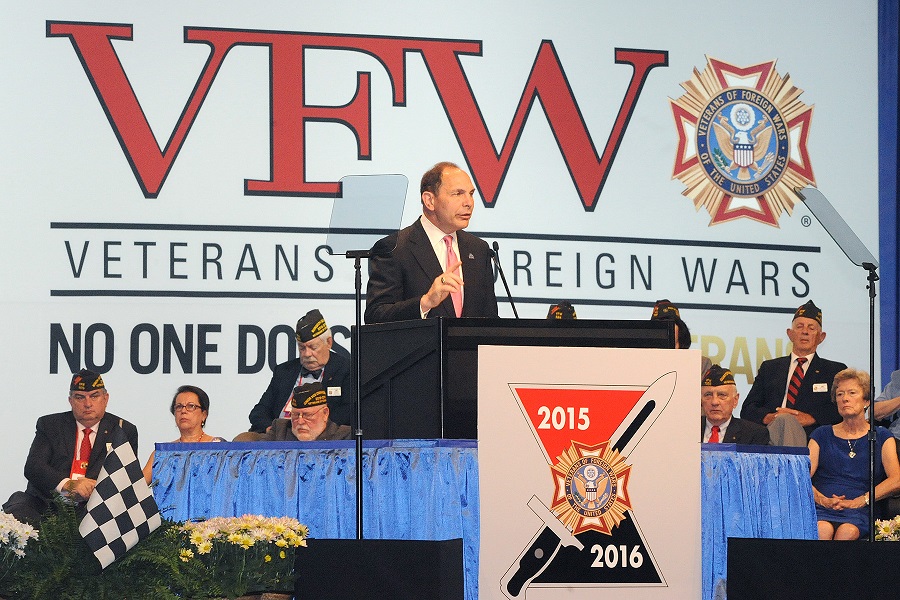Veterans may experience social isolation after leaving the military. This can due to a number of factors, including the loss of military community, the difficulty of adjusting to civilian life and the stigma associated with mental health conditions. This is why it’s important to connect transitioning Veterans with a “battle buddy” during transition. Veteran Service Organizations (VSOs) can be helpful keeping Veterans connected. Community Veteran Engagement Boards and other local groups keep Veterans connected in their communities, too.
Still, more can be done. Here are my top five ideas for improving the social isolation of Veterans.
Increase awareness of the issue
Many people are not aware of the challenges that Veterans face, including social isolation. Increasing awareness of this issue can help to break down the stigma associated with mental health conditions, and it can encourage people to reach out for help. I remember visiting a new medical school with a local Congressman. Together, we watched and noted whether patients would park in the hospital parking lot or the mental health care clinic parking lot. Given my Proctor & Gamble experience observing consumers, I predicted to the member of Congress that the neon mental health clinic sign would deter patients from parking there. Unfortunately, I was right. We need to reverse this stigma by increasing transparency and communication.
Provide support services
There are a number of organizations that provide support services to Veterans. These services can help Veterans connect with other Veterans, find employment and access health care. During my time as Secretary, I noted that we needed help. On our own, we couldn’t solve all Veterans’ issues by ourselves, so I created an Office of Strategic Partnerships to be the liaison with Veteran Service Organizations. This office helped us be an “air-traffic controller” for this synergistic and synchronistic care for Veterans.
Create opportunities for social interaction
There are a number of ways to create opportunities for social interaction, including providing access to community centers, recreation centers and other places where Veterans can meet and socialize. I remember when I visited a VA Medical Center. I went to the coffee shop to visit with Veterans. I was afraid I was making them late for their appointments, but what I found was that many didn’t even have appointments. They were just there to hang out with their fellow Veterans.
Encourage Veterans to get involved in their communities
Getting involved in one’s community is a great way to meet new people and make friends. Veterans can get involved in a variety of activities, such as volunteering, joining clubs or taking classes. Research from Got Your Six found that Veterans are more active in their communities—they vote more frequently, they run for office, join the school board, and more. Their concept of service extends beyond military service. As a country, we need to take advantage of this civil engagement.
Challenge the stigma associated with mental health conditions
The stigma associated with mental health conditions can prevent Veterans from seeking help. It’s important to challenge this stigma and encourage Veterans to talk about their mental health challenges. VA does a great job of not only treating Veterans’ physical health, but also the mental and spiritual health. Here, the primary care physician would be the connector and coordinator of a Veteran’s health to mental health professionals and chaplains to round out a holistic treatment plan.
About Robert A. McDonald
Bob McDonald served at Procter & Gamble for 33 years, with the last four as Chairman, President and Chief Executive Officer. During his tenure as CEO of P&G, he helped to expand the footprint of the company brands such that one billion people became new customers of a company product.
Following his career at P&G, he was selected by President Obama in 2014 as the eighth Secretary for the Department of Veterans Affairs. While at the helm of VA, he was able to help transform the agency into one that truly delivered better care for our military Veterans. For more information about his life and career, please visit his website.
Topics in this story
Link Disclaimer
This page includes links to other websites outside our control and jurisdiction. VA is not responsible for the privacy practices or the content of non-VA Web sites. We encourage you to review the privacy policy or terms and conditions of those sites to fully understand what information is collected and how it is used.
Statement of Endorsement
Reference herein to any specific commercial products, process, or service by trade name, trademark, manufacturer, or otherwise, does not necessarily constitute or imply its endorsement, recommendation, or favoring by the United States Government, and shall not be used for advertising or product endorsement purposes.
More Stories
The Social Security Administration is hoping to make applying for Supplemental Security Income (SSI) a whole lot easier, announcing it will start offering online, streamlined applications for some applicants.
Yusuf Henriques, an Army Veteran and former combat medic, is the founder and CEO of IndyGeneUS AI, a genomics company on a mission to improve health equity by increasing representation of women and racial minorities in clinical trials.
Online shopping scams are the riskiest scam for Veterans, with 77.3% of reports confirmed losing money when targeted by this scam.






